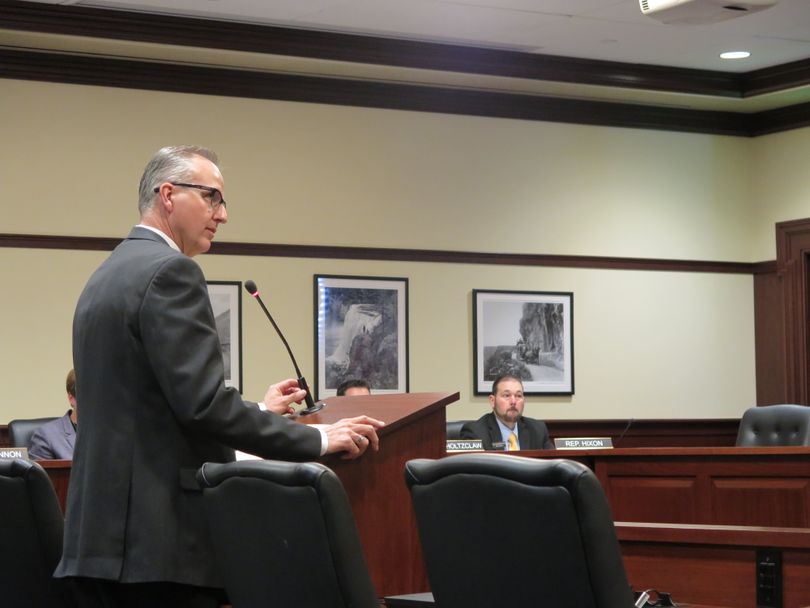Rep. Nate pitches new bill to remove front license plate requirement for some cars

Last year, a Senate committee deadlocked on Corvette-driving Sen. Jim Patrick’s proposal to remove Idaho’s requirement for a front license plate on vehicles, killing it on a 4-4 vote. Today, the House Transportation Committee agreed unanimously to introduce a different version of the bill from Rep. Ron Nate, R-Rexburg. Nate’s bill would remove the requirement for a front plate on any vehicle that wasn’t manufactured with a specific spot for one.
“An increasing number of new cars are modeled without the front plate,” Nate told the committee. He said his bill would save those vehicle owners the cost of buying after-market brackets, and also preserve the “style and looks” of the car. And he offered another novel argument in favor of his bill: That it would reduce air pollution. “Having a flat front plate does increase wind drag on the car,” Nate said. When you add up all those cars with all those plates, “It turns out to be a lot of extra pollution trying to push those license plates down the road, if that makes sense.” Laughter ensued.
Rep. Phylis King, D-Boise, who had asked Nate a question about his bill, responded, “Uh, yeah.” She also asked Nate to bring along someone from the Idaho State Police if the committee holds a full hearing on his bill. Last year, ISP and local police agencies opposed the bill, saying they rely on front license plates to identify vehicles.
Rep. Melissa Wintrow, D-Boise, said, “I hate to disclose this, but I was pulled over by the police for not having that plate on when I first moved here, and was fined. So I’m curious how the police would know,” whether or not a particular vehicle was manufactured with a spot for the plate or not. Nineteen states don’t require front license plates, only two, Arizona and New Mexico, in the West; all others require them.
Nate said he hadn’t yet spoken with law enforcement about the bill, “but word on the street is there’s going to be some pushback from the police.”
The committee’s vote to introduce the measure clears the way for a full hearing – should the chairman decide to schedule one.
